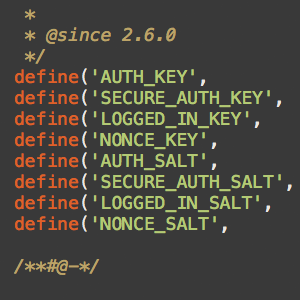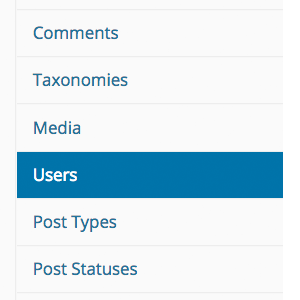
List of WordPress Developers & Designers (2024)
Previously we posted a list of available WordPress Developers & Designers. Lots of great people and companies shared their information, but a lot has changed since then. So rather than try to contact everyone on the list and ask them to update their infos, here is a new post of current WordPress developers & designers.

How to Disable CSS and JavaScript Added by Plugins
One of the most annoying things in the WordPress universe are plugins and themes that don’t conditionally load their scripts and styles (i.e., JavaScript and CSS files). For example, you install a dashboard plugin and it loads its scripts in the entire Admin Area and the frontend. Instead, the developer should have used conditional logic to NOT load the script on the frontend (e.g., via !is_admin()), or anywhere in the Admin Area EXCEPT the dashboard (e.g., via get_current_screen()). It’s just basic human decency.
New Pro Version of GA Google Analytics
After months of development, I am excited to announce my newest premium WordPress plugin: GA Pro! Quite simply it connects your WordPress site to your Google Analytics account just like the free version, but with awesome new features like visitor Opt Out, multiple trackers, code previews, and more.

Display Your WordPress Site Statistics: Complete Guide
Just to be crystal clear, this post is all about displaying basic statistics about your site, not about your visitors. So if you are thinking something like, “duh, just use Google Analytics or whatever,” then imagine a giant buzzer sound telling you that you’re incorrect. Sure, Google Analytics gives you information about your visitors, like how many, where from, how long, and so forth. But GA et al do NOT provide information about your site itself. Things like the number of registered users, number of posts and pages, number of comments, and all the other cool little details about your site. That is what we’ll be covering in today’s DigWP tutorial. So grab some popcorn and enjoy the show! ;)

Official Resources for the Gutenberg Block Editor
Just a quick post to share some recommended useful resources for anyone working with the new Gutenberg Block Editor. Our book Digging Into WordPress now links to this post, so readers can learn more and dive deep into Gutenberg. Or just bookmark for future reference. What does that mean? It means that this page will be updated with any new useful and official resources. And by “official” just means the information is sourced/hosted at WordPress.org.
Holiday Book Sale!
Save 20% on Digging Into WordPress, The Tao of WordPress, .htaccess made easy, and WP Themes In Depth. Visit Perishable Press Books and enter coupon code HOHOHO during checkout for instant savings. Happy Holidays! :)

How to Selectively Enable Gutenberg Block Editor
Previously, we covered numerous techniques to disable Gutenberg. For example, you can disable Gutenberg on specific post types, user roles, post IDs, and so forth. But what about doing the opposite and conditionally enabling Gutenberg? For example, if Gutenberg is disabled by default, you could then selectively enable it on whichever post types, user roles, or whatever criteria that’s required. So this tutorial explains how to enable Gutenberg using simple WordPress filter hooks. You’ll learn how to enable Gutenberg for any single posts, new posts, post meta, categories, tags, and post types. Plus some juicy tips and tricks along the way!
DigWP Newsletter
What up! Just to help spread the word about the DigWP newsletter. Get WordPress news, tips, and special offers delivered fresh to your inbox. 3-4 times per year max. Always good stuff, never spam, and we never share your info with anyone. Just a quality newsletter letting you know about awesome stuff happening in our corner of the WordPress universe.

About the “Warning! WordPress Encrypts User Cookies” Error
Upgrading from older versions of WordPress is designed to go without a hitch, but depending on the setup and the two versions involved, you may encounter some hangups along the way. For example, if you are upgrading from a version of WordPress older than 3.0, eventually you may encounter the dreaded “Warning! WordPress Encrypts User Cookies” error. This quick DigWP tutorial explains what it is, why it happens, and how to fix the problem asap.

Subscribe to Comments Plugin: Delete Data from Database
During the latest site redesign, I removed the Subscribe to Comments plugin. Wisely, the plugin does not delete any subscriber information from the database. So as a part of the site’s redesign slash clean-up, I wanted to export/save and then delete all subscriber information to decrease overall database size. After searching and not finding any specific solution or preferred technique for this process, I rolled my own. Actually it’s just a simple SQL query to get it done! :)
Password Policy Manager
Weak passwords leave your site vulnerable. WordPress sites with more than one user should enforce a “strong password” policy for better security. To help with this, check out Password Policy Manager. It is a CHOICE WordPress plugin that makes it easy to define a strong set of password requirements for your site’s users. Easy to use and provides a robust set of features. Check it out.

Securing the WP REST API
I think many WordPress users probably underestimate the amount of data that is made available via the REST API. Just about everything is available to anyone or anything that asks for it: posts, pages, categories, tags, comments, taxonomies, media, users, settings, and more. For most of these types of data, public access is useful. For example, if you have a JSON-powered news reader, it can basically replicate your entire site structure virtually anywhere. But that easy access invites potential abuse. Just like with RSS feeds, RESTfully delivered JSON content is easily scraped and used for spam, phishing, plagiarism, adsense, and other foul things.
Lean WP
Super useful plugin from Pieter, to help restore WordPress closer to its foundational philosophy of “Clean, Lean, and Mean”. Lean WP disables LOTS of potential bloat like Emojis, REST API, Embeds, XLM-RPC, et al. Pieter also offers some other great plugins.
WordPress is Forked
It’s happening: WordPress is being forked. Meet ClassicPress. The original, Gutenberg-free WordPress publishing platform.







